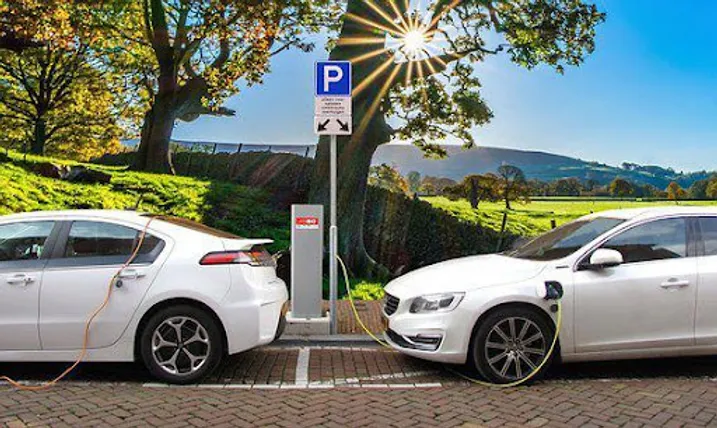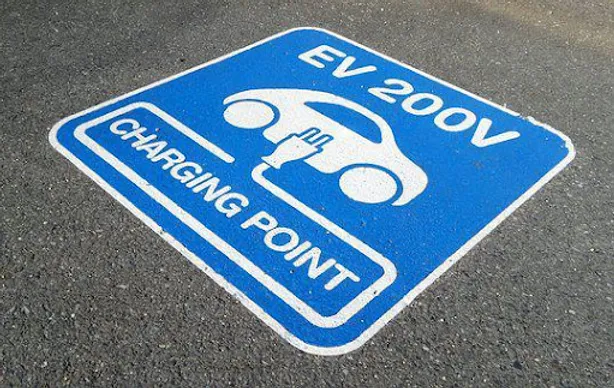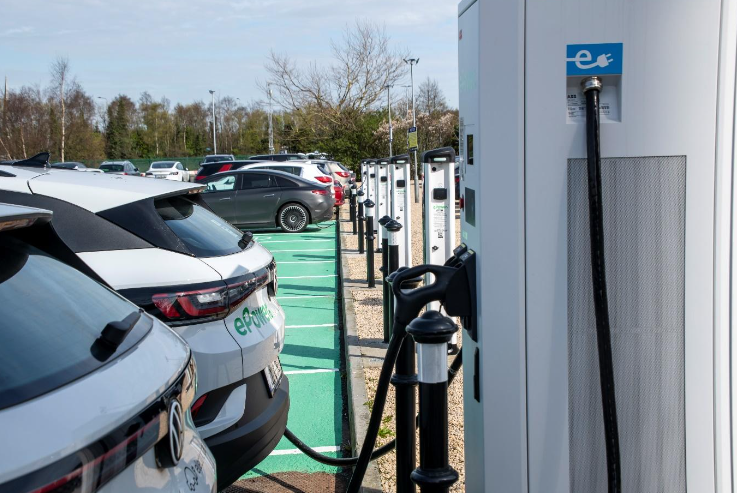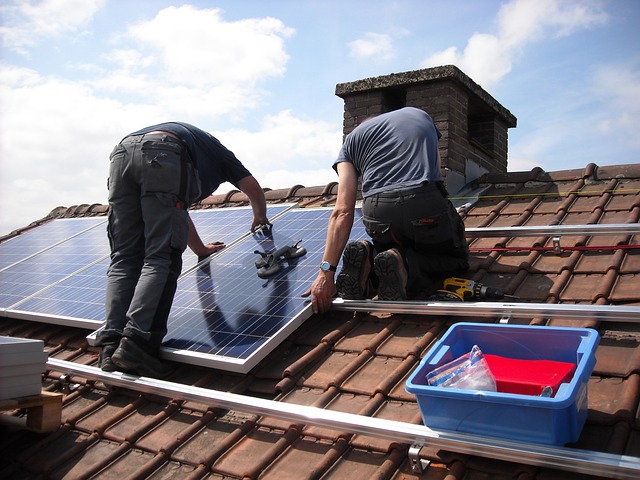
On the 30th July 2021, the S.I. No. 393/2021 – European Union (Energy Performance of Buildings) Regulations 2021 came into force.
The directive states that:
“(d) In respect of an existing building (other than a dwelling) with more than 20 car parking spaces, there shall be installed, before 1 January 2025, one, or more, recharging points.
(e) A building (other than a dwelling) which has more than 10 car parking spaces, that is –
(i) new, or
(ii) subject to subparagraph (g), undergoing major renovation,
shall have installed at least one recharging point and ducting infrastructure (consisting of conduits for electric cables) for at least one in every 5 car parking spaces to enable the subsequent installation of recharging points for electric vehicles.
(f) A building (containing one, or more than one, dwelling), which has more than 10 car parking spaces, that is –
(i) new, or
(ii) subject to subparagraph (g), undergoing major renovation,
shall have installed ducting infrastructure (consisting of conduits for electric cables) for each car parking space to enable the subsequent installation of recharging points for electric vehicles.“
Simply put, the directive requires that all new buildings be “nearly zero-energy” by 2021. It also states that all existing facilities must be upgraded to this standard by 2050.
To add, with this new Directive, EV owners will have access to charging infrastructure, including charging stations, that is more energy-efficient and will help reduce their carbon footprint. So, yes, the Energy Performance of Buildings directive does mean good news for EV owners in the EU.
How Does the EU’s Energy Performance of Buildings Directive Impact Ireland?
The Directive will have several positive impacts. First, it will help reduce Ireland’s carbon emissions. Second, it will create jobs in the renewable energy sector. Finally, it will encourage investment in energy-efficient buildings.
Ultimately, the EU’s Energy Performance of Buildings Directive is an important step in the fight against climate change. It can help in reducing the country’s dependence on fossil fuels. It is undeniable that its provisions are great not just for Ireland and the EU but also for the planet.
What Does the Directive Mean for EV Owners in Ireland?

If you are an electric car owner or thinking of getting an electric car, it means that there will be more charger points installed in parking spaces. This is excellent news as it removes one of the barriers to people making the switch to electric cars – not being able to charge them!
Of course, as with any new Directive, there will be some teething problems. For example, it is unclear how smaller builders will be able to comply with the new regulations. There is also the issue of who will pay for the charger points – the builder, the homeowner, or the government.
Ultimately, though, this directive may convince more people to switch to cleaner, greener cars.
Will We See More Electric Vehicle (EV) Chargers on the Irish Market?
Electric vehicles are an environmentally friendly alternative for transportation. They do not require fossil fuels like petrol or diesel. As part of a nationwide initiative to decarbonise energy, governments are encouraging the use of electric vehicles.
The Government of Ireland has set a target to have 950,000 electric vehicles on the road by 2030. As a result, we will likely see an increase in EV charging points on the market. Currently, there are over 1,400 public EV charging points across the country. This is expected to grow to over 5,000 by 2025. With the Directive, we can expect the government to meet (or even exceed) this target.
So, if you are considering switching to an electric car, there has never been a better time! Not only will you be doing your bit for the environment, but you will also have plenty of places to charge your car.
What Are Electric Vehicle Charging Points?

EV charging stations are electric devices that can supply electricity for charging electric vehicles. Most electric vehicles have a converter onboard which plugs into standard power outlets or even high-power outlets. Other electric cars are powered by charger systems which offer conversion monitoring and safety functions. Charging stations can charge faster at higher voltages than electric vehicle supplies equipment (EVSE).
Will the SEAI Electric Vehicle Homeowner Charge Grant Help Irish EV Owners?
It is worth mentioning that public charging stations are not the only options you have to charge your EV. You can also power them up at home, which is deemed by many as the more convenient way of charging electric cars. What is even great is that the government aids those who want to install home EV chargers.
The SEAI Electric Vehicle Home Charger grant offers a €600 rebate towards the cost of installing a home charger for electric vehicles. This is an excellent incentive for people considering switching to an electric car, as it can help offset the initial cost of installing a charger.
However, the grant is only available to homeowners with primary residence in Ireland. So, if you are an electric car owner who lives in an apartment or rented property, you won’t be eligible for the grant.
To add, the grant is only available for new installations. So, if you already have a charger installed, you won’t be able to claim the rebate.
If you are considering getting an electric car, check whether you are eligible for the grant before purchasing.
You must show proof of ownership for an eligible new or second-hand electric vehicle (EV) to receive payment, but you may also apply and install your charger before receiving the car.
Read more about the grant here.
Is It Easy to Install an Electric Vehicle Charger at My Home?
If you have off-street parking, installing a home charger is generally a straightforward process. The first step is to choose a location for your charger – somewhere close to your electrical supply and with easy access for your car.
Once you have chosen a location for the electrical installation of the home EV charger, your electrician will need to install a dedicated circuit from your fuse box to the location of your charger.
After the circuit is installed, your electrician will connect your charger to the electrical supply and install any necessary safety features. Once the installation is complete, you can start charging your car at home!
If you do not have off-street parking or your electrical supply is not located close to your parking space, you may still be able to install a home charger. However, the process may be slightly more complicated. In these cases, it is best to consult a professional electrician to discuss your options.
Should I Hire a Dedicated EV Charger Company to Install My Charge Points?
Maybe, you are wondering if it makes sense to hire an EV charger company to install your charger. Well, yes, it may make sense to hire professional installers in some cases. If you do not have off-street parking or if your electrical supply is not located close to your parking space, a professional installation company will be able to assess your situation and determine the best way to install your charger.
Additionally, some installation companies offer additional services such as ongoing maintenance and support, which can be beneficial if you are not confident in your ability to troubleshoot any issues that may arise. Overall, having a professional company install your home charger may be the best option, especially if you are unfamiliar with electrical installations.
What Are the Benefits of Having a Home Charger for My Electric Car?
There are plenty of benefits to having a home charger for your electric car. Perhaps, the most obvious one is that you will never have to worry about running out of battery while you are out and about. Simply charge your car at home before you head out, and you will be good to go!
Another benefit of having a home charger is that you will always have a charge point available when you need it. As mentioned earlier, the number of public charge points in Ireland is limited. Furthermore, they are often located in inconvenient or difficult-to-reach places. So, having a charger at home means you can charge your car whenever it is convenient.
Finally, home chargers tend to be much cheaper than public charge points. In case you did not know, public charging stations often have high fees, while home chargers are relatively inexpensive to install and operate.
Overall, having a home charger is the best way to charge your electric car. It is more convenient, affordable, and reliable than public charge points
EVs are the future, and it is great to see that the EU is taking steps to make them more accessible. We hope the new Directive will encourage more people to switch to electric cars and help make Ireland greener.
Are you thinking of getting an EV? Make sure that you also install an EV home charger for more convenient charging! Contact us now to get a quote for your home charger installation! Call us on 01-9029800 or fill out the form here!
Royalty-free Images supplied from PixaBay as part of SEO service from 3R




